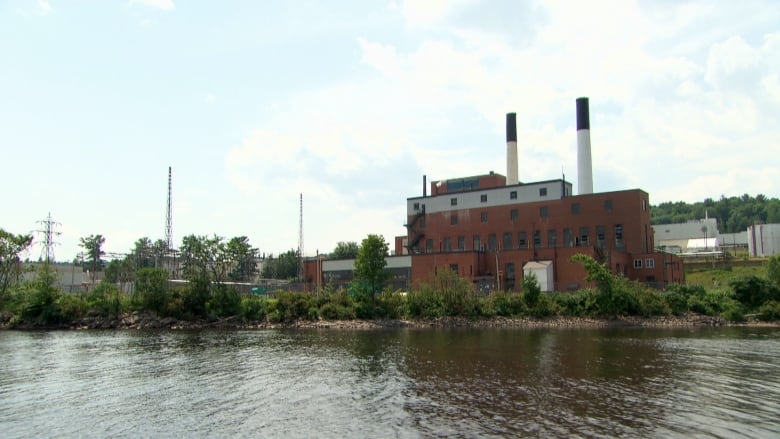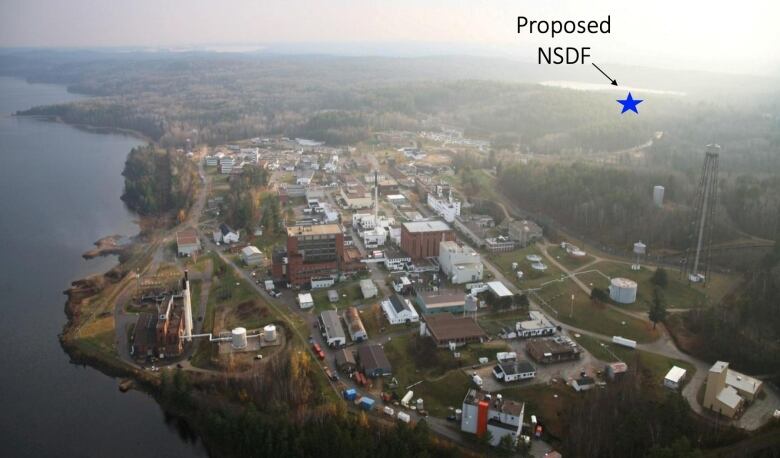City of Ottawa submits recommendations for nuclear waste disposal site at Chalk River
Recommendations centre on protecting the Ottawa River from contamination

Ottawa city staff have submitted their recommendations for the proposed nuclear waste facility at Chalk River to ensure the Ottawa River is protected from contamination.
In a memo dated March 10, staff outline 10 recommendations to ensure the safety of river, the primary source of drinking water for residents of Ottawa.
"We are supportive of the proposed [near-surface disposal facility]as a means of providing improved environmental protection and engineered storage for low-level radioactive waste," the memo said.
"At the same time, we need to be mindful of our [residents'] concerns and our limitations to treat/remove some of the radioactive substances that might originate from [Chalk River Laboratories]."
This debate about nuclear waste upstream fromOttawa has been ongoing since 2016. Many haveraisedalarms aboutplans to store waste for thousands of years near a water course, especially one that provides drinking water to more than a million people.
Atomic Energy of Canada Ltd. saidthe newdisposal site at Chalk River would handlea large amount onemillion cubic metres of "low level" radioactive waste in solid form,mainly from old buildings fromthe 1940s through 1960s that need to be taken down.
Recommendations

The recommendations centre on protecting the Ottawa River from contamination from nuclear waste and include:
- A weather shield be a requirement for the facility's operating licence. It would aim to minimize how much snow and rain could fall on the site and become potentially contaminated by nuclear waste.
- That the operating licence clearly state the criteria for the "discharge of treated wastewater including requirements for sampling, testing, reporting, andregulatory oversight."
- Radiological test results for the Ottawa River upstreamand downstream of the Chalk River site be published or shared in a timely manner (quarterly) withdownstream municipalities, for the purposes of data comparison and environmental trending.
- That spillnotification protocols be confirmed with downstream municipalities using the Ottawa River as a source of drinking water. The notification protocol and contact list should be tested annually.
- That all futureenvironmental projects include a transparent risk ranking of alternatives with a public commentingperiod prior to selecting the preferred design option.
- That measuresbe taken to immobilize radionuclides and ensure "dry" storage conditions to minimize/eliminateleaching of radionuclides into the near-surface disposal facility wastewater stream.
- Measures be taken to protect the river during demolition and waste transfer activities.
- That low-level waste materials containinganthracene, chloroform, chrysene, ethylene dibromide, and fluoranthene be modified to minimize or eliminate leaching into the wastewater treatment plantinfluent.
The city reaffirmedits position against importing nuclear waste from other sites, noting 95 per cent of the waste for the facility is already on-site.
It also recommended the treated effluent be discharged directly intoPerch Lake, which flows to the Ottawa River, rather than the groundwater aquifersbecause the latter "will only add to the burden of radionuclides (e.g. tritium) already present in the groundwater."
"Further, a subsurfacedischarge represents a less controlled release that is more difficult to monitor, and its environmentaleffect deferred into future decades," the city said.
Corrections
- A previous version of this story incorrectly referred to Perch Lake as the Perth River.Mar 23, 2022 7:00 AM ET












_(720p).jpg)


 OFFICIAL HD MUSIC VIDEO.jpg)
.jpg)



























































































